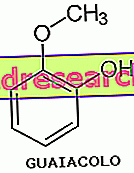Related articles: Epileptic seizures
Definition
An epileptic seizure is an abnormal and uncontrolled electrical discharge of neurons, which transiently interrupts normal brain function. This phenomenon typically causes alterations in the state of consciousness, involuntary movements or convulsions.
Epilepsy is a disease characterized by recurrent and spontaneous seizures. Epileptic seizures, however, can also be isolated and not relapsed, such as those that occur, for example, during a febrile illness or after a head injury. Various disorders affecting the brain are associated with this manifestation, such as malformations, strokes, hypertensive encephalopathy, eclampsia and brain tumors. Epileptic seizures can also occur in the case of degenerative diseases (such as Alzheimer's disease), autoimmune diseases (eg multiple sclerosis), ischemia or hypoxia (eg arrhythmias, drowning and intoxication by carbon monoxide) and CNS infections (eg meningitis, neurosyphilis, rabies, tetanus, toxoplasmosis, encephalitis or HIV infection). Furthermore, various drugs given in toxic doses can cause seizures (eg amphetamines and other CNS stimulants). Other possible causes include problems related to pressure, metabolic alterations and withdrawal symptoms.
Possible Causes * of epileptic seizures
- AIDS
- Brain aneurysm
- Cysticercosis
- Cerebral hemorrhage
- Stroke
- Carbon monoxide intoxication
- Systemic lupus erythematosus
- Meningioma
- Meningitis
- Alzheimer's disease
- Neurofibromatosis
- Pre-eclampsia
- Anger
- Multiple sclerosis
- Syphilis
- Decompression syndrome
- Tetanus
- Toxoplasmosis



